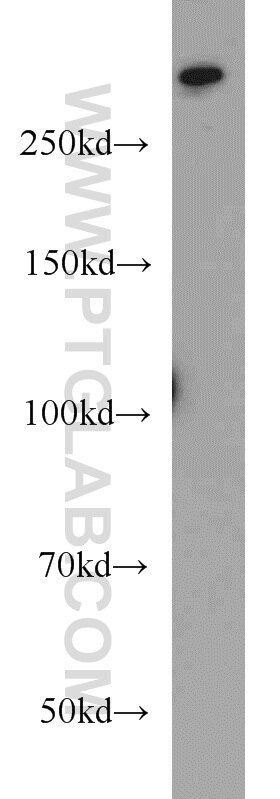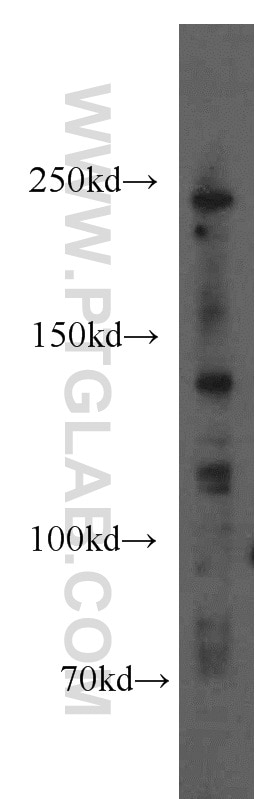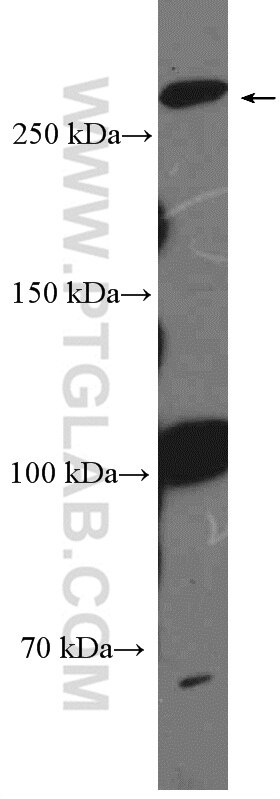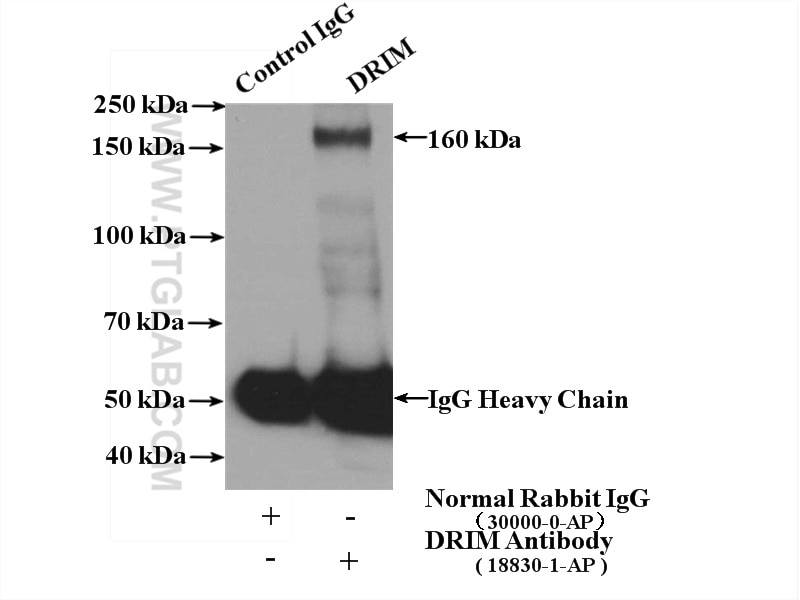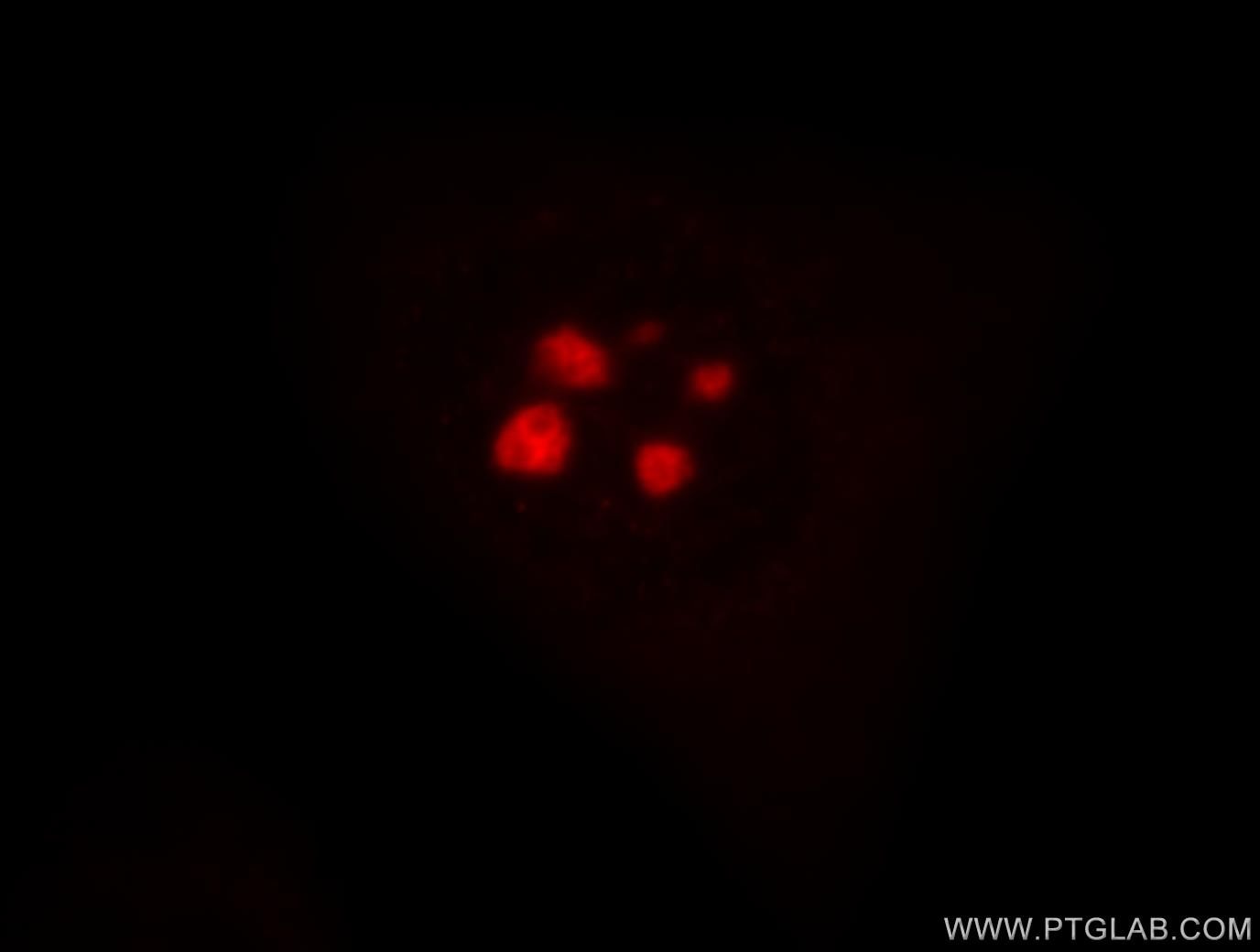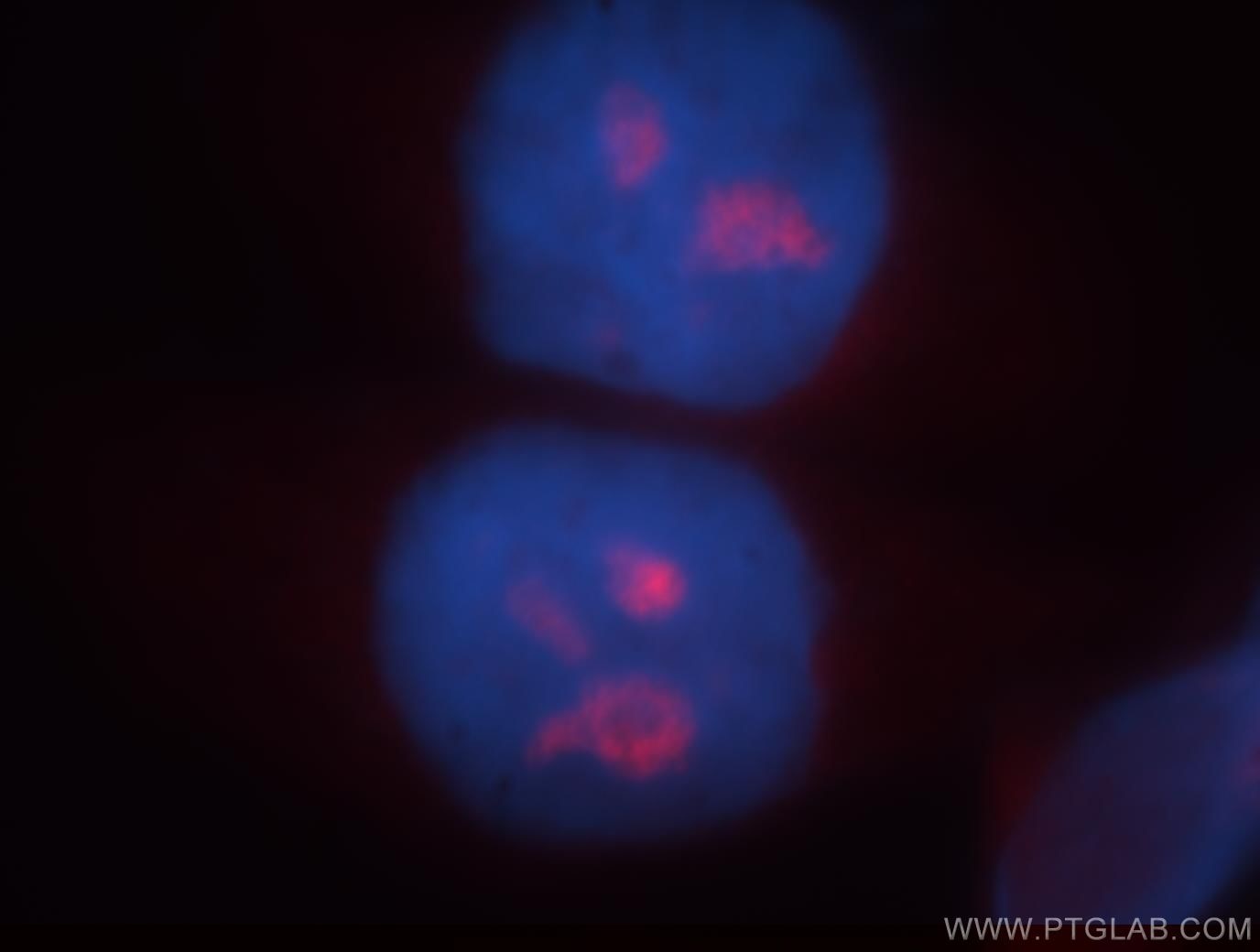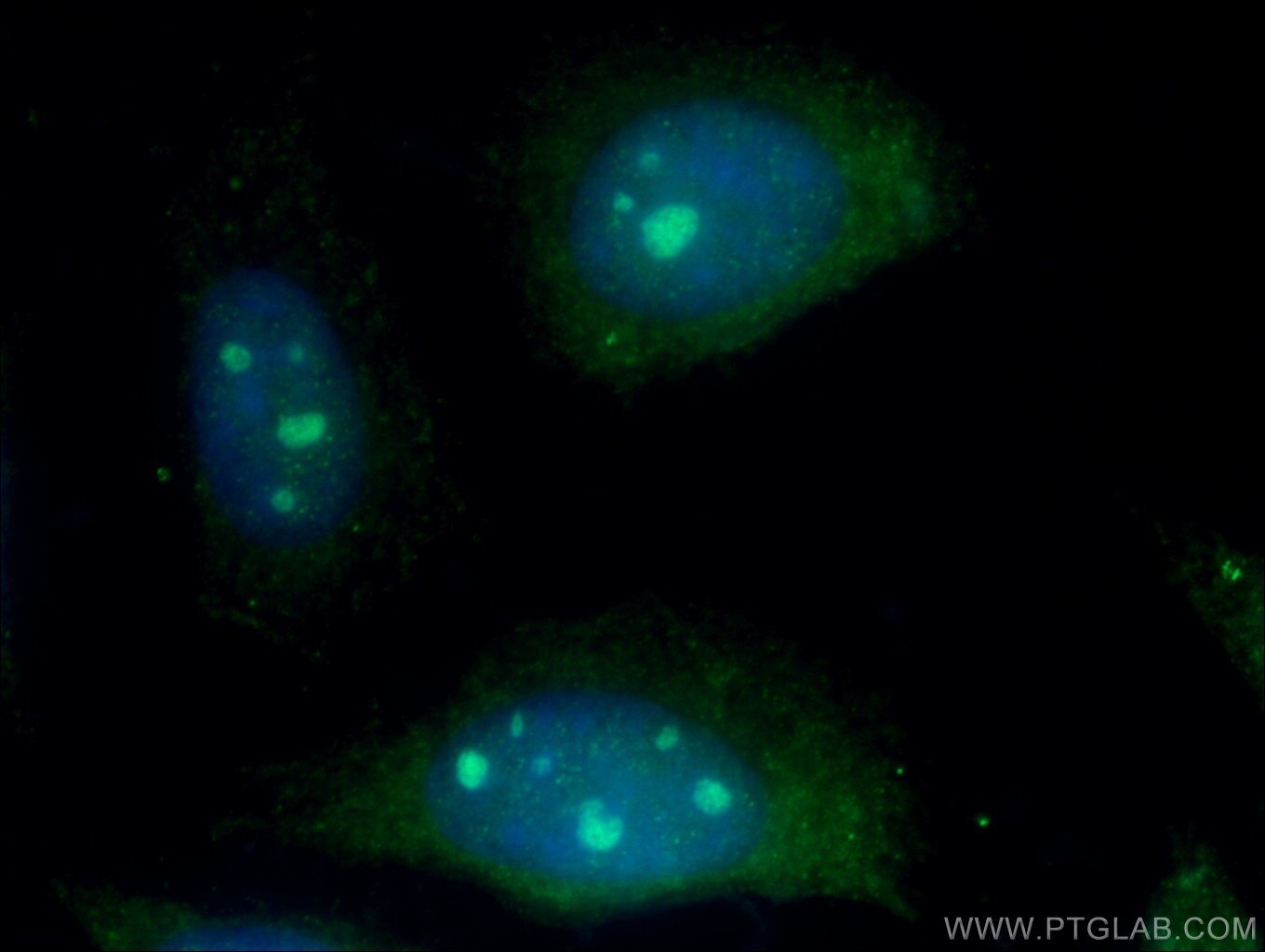Validation Data Gallery
Tested Applications
| Positive WB detected in | HeLa cells, HepG2 cells, mouse ovary tissue |
| Positive IP detected in | HeLa cells |
| Positive IF/ICC detected in | Hela cells |
Recommended dilution
| Application | Dilution |
|---|---|
| Western Blot (WB) | WB : 1:500-1:2000 |
| Immunoprecipitation (IP) | IP : 0.5-4.0 ug for 1.0-3.0 mg of total protein lysate |
| Immunofluorescence (IF)/ICC | IF/ICC : 1:20-1:200 |
| It is recommended that this reagent should be titrated in each testing system to obtain optimal results. | |
| Sample-dependent, Check data in validation data gallery. | |
Product Information
18830-1-AP targets 1A6/DRIM in WB, IF/ICC, IP, ELISA applications and shows reactivity with human, mouse, rat samples.
| Tested Reactivity | human, mouse, rat |
| Host / Isotype | Rabbit / IgG |
| Class | Polyclonal |
| Type | Antibody |
| Immunogen | Peptide 相同性解析による交差性が予測される生物種 |
| Full Name | UTP20, small subunit (SSU) processome component, homolog (yeast) |
| Calculated molecular weight | 318 kDa |
| Observed molecular weight | 310 kDa |
| GenBank accession number | NM_014503 |
| Gene Symbol | UTP20 |
| Gene ID (NCBI) | 27340 |
| RRID | AB_10597541 |
| Conjugate | Unconjugated |
| Form | Liquid |
| Purification Method | Antigen affinity purification |
| UNIPROT ID | O75691 |
| Storage Buffer | PBS with 0.02% sodium azide and 50% glycerol , pH 7.3 |
| Storage Conditions | Store at -20°C. Stable for one year after shipment. Aliquoting is unnecessary for -20oC storage. |
Background Information
UTP20, also named as DRIM, interacts with KIAA0649.
Protocols
| Product Specific Protocols | |
|---|---|
| WB protocol for 1A6/DRIM antibody 18830-1-AP | Download protocol |
| IF protocol for 1A6/DRIM antibody 18830-1-AP | Download protocol |
| IP protocol for 1A6/DRIM antibody 18830-1-AP | Download protocol |
| Standard Protocols | |
|---|---|
| Click here to view our Standard Protocols |
